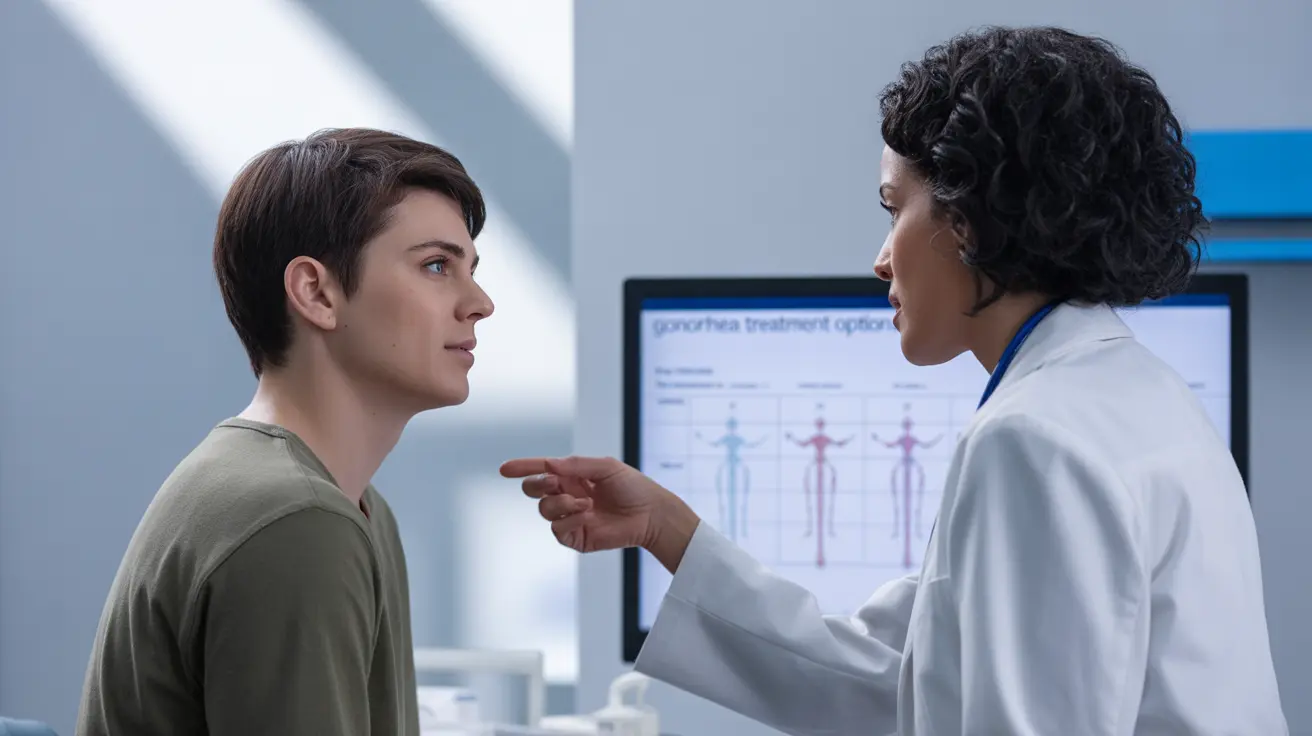If you're searching for information about treating gonorrhea without medical intervention, it's crucial to understand that professional medical care is essential. Gonorrhea is a serious sexually transmitted infection that requires proper antibiotic treatment prescribed by a healthcare provider. This article will explain why medical treatment is necessary and address common questions about gonorrhea care.
Understanding Gonorrhea and the Importance of Medical Treatment
Gonorrhea is a bacterial infection that can cause serious complications if left untreated. While some people might be tempted to try home remedies or avoid seeking medical care, this approach can lead to severe health consequences, including infertility and increased risk of HIV transmission.
Why You Must See a Doctor for Gonorrhea Treatment
Attempting to treat gonorrhea without medical supervision is dangerous for several reasons:
- Antibiotic resistance requires specific medication combinations
- Only laboratory testing can confirm proper treatment
- Untreated infections can spread to other body parts
- Partners need proper medical evaluation and treatment
- Complications can become permanent without timely care
The Risks of Delaying Professional Treatment
When people avoid seeking medical care for gonorrhea, they face serious health risks:
Short-term Complications
Without proper treatment, gonorrhea can cause:
- Severe pain and discomfort
- Spread of infection to joints and blood
- Increased risk of transmitting to partners
- Pregnancy complications if applicable
Long-term Health Consequences
Untreated gonorrhea may lead to:
- Permanent reproductive system damage
- Chronic pelvic pain
- Increased risk of ectopic pregnancy
- Potential infertility
The Only Effective Treatment Approach
The CDC-recommended treatment for gonorrhea involves specific antibiotics that must be prescribed by a healthcare provider. This typically includes:
- A single injection of ceftriaxone
- Possible additional oral antibiotics
- Follow-up testing to ensure cure
- Treatment for all sexual partners
Accessing Proper Medical Care
If concerns about seeking treatment are holding you back, consider these options:
- Visit a local sexual health clinic
- Contact your primary care physician
- Find low-cost or free STI testing centers
- Utilize confidential testing services
After Treatment: Prevention and Future Care
Once properly treated, take these steps to prevent reinfection:
- Complete all prescribed medications
- Abstain from sexual activity during treatment
- Ensure all partners get tested and treated
- Use protection during future sexual encounters
- Get regular STI screenings
Frequently Asked Questions
Can gonorrhea be cured without going to a doctor or using antibiotics?
No, gonorrhea cannot be cured without proper antibiotic treatment prescribed by a healthcare provider. The bacteria causing gonorrhea require specific antibiotics that are only available through prescription.
What home remedies might people try for gonorrhea, and are they effective?
While some people may attempt to use garlic, apple cider vinegar, or other natural remedies, none of these are effective against gonorrhea. These methods can actually delay proper treatment and lead to serious complications.
What is the recommended medical treatment for gonorrhea?
The CDC-recommended treatment involves an injection of ceftriaxone, sometimes combined with other antibiotics. Only a healthcare provider can prescribe this treatment after proper diagnosis.
Why is it important to get treated for gonorrhea instead of relying on natural cures?
Professional treatment is essential because gonorrhea can cause permanent damage if left untreated, and the bacteria have become resistant to many antibiotics, requiring specific medical protocols for effective treatment.
How can I prevent gonorrhea reinfection after treatment?
To prevent reinfection, ensure all sexual partners are tested and treated, wait until treatment is complete before resuming sexual activity, use condoms consistently, and get regular STI screenings.




